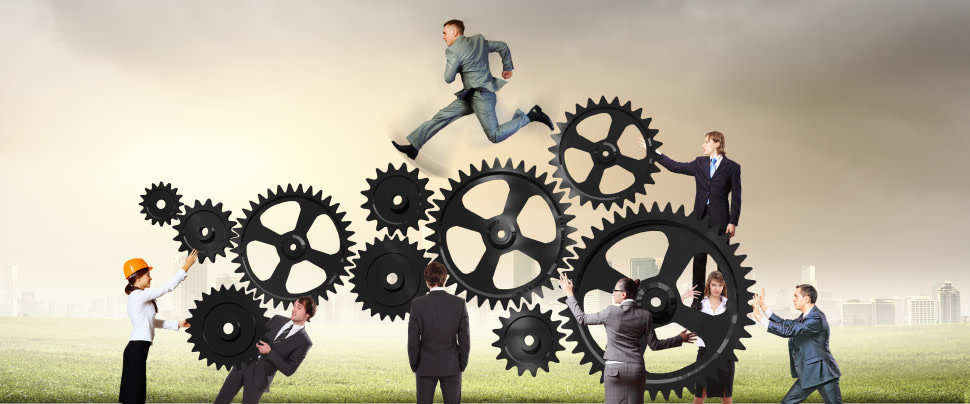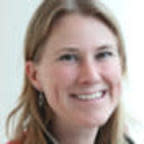2015: all on board for a better world

- Sustainability

Ghislaine Nadaud
Senior Advisor Risk, Advisory & Monitoring Sustainable Banking
In 2000 the United Nations adopted its first-ever sustainable development agenda for the entire world. They thus entered into a commitment until 2015 to help achieve eight Millennium Development Goals (MDGs) in such areas as poverty reduction, maternal health, child mortality, primary education and the fight against fatal diseases like HIV and malaria. Last Friday the UN member states placed their signatures under seventeen new goals, thereby guaranteeing the continuation of these international efforts for a better world for the coming fifteen years. It's an ambitious list. And ABN AMRO very much wants to do its bit.
“"The world faces huge challenges. You can never tackle these alone."”
Ghislaine Nadaud
Senior Advisor Risk, Advisory & Monitoring, afdeling Duurzaam BankierenMDG success whets appetite for more
The eight MDGs from 2000 were developed in an administrative process within the UN. They were initially aimed at national governments who pledged to strive for a fairer distribution of prosperity, better healthcare and primary education for all. Not all the targets were achieved, but the results achieved fifteen years on are impressive. Since 1999, for instance, the number of people living below the poverty line has declined from 1.9 billion to 836 million. Encouraged by these successes the UN has now defined new goals for 2030: the Sustainable Development Goals (SDGs).
The bar is high for 2030
The are wider-ranging than the goals from 2000. The new themes for the coming fifteen years include sustainability, clean energy, clean drinking water, safe and green cities, and sustainable production and consumption patterns. The goals are thus no longer confined to the third world, but extend to Western countries too. Moreover the 'classic' goals on healthcare, education and equal rights for men and women have become much more ambitious. For instance, instead of seeking to halve extreme poverty, the UN now wants to eradicate all poverty. These ambitions resulted in a longer list of goals than in 2000: seventeen in total, and no less than 169 policy indicators.
From governments to citizens: everyone must join in
The SDGs are the outcome of various large-scale rounds of consultations with developing countries, NGOs, businesses, scientists and citizens. And their universal scope reflects this broad-based consultation: this time round not only governments must commit to the goals, but businesses, civil society organisations and citizens too. It's time for the West to turn its pledges into actions: the Netherlands must also do more to promote green energy, sustainable consumption and production patterns, and gender equality.
Money from more than one savings pot
Achieving the SDGs will cost money. Lots of money. According to the World Bank and IMF, it will take ‘not billions, but trillions’. Estimates vary from 2 to 4.5 billion per year, roughly 4% of global GDP. At a summit in Addis Ababa held last July the world leaders reached agreement about the financing of the SDGs. That's a step in the right direction. But ‘traditional’ development aid alone is not enough. Other sources of funding, such as business investments, tax reforms and the reduction of tax evasion, are needed to turn the SDGs into reality.
Business funding is crucial
Clearly, the SDGs can only be achieved if the business community flexes its financial muscle. Social change goes hand in hand with economic growth. Business investments in developing countries account for about 60% of these countries' GNP, 80% of their capital inflow and about 90% of their jobs. But businesses can do more than contribute money alone. Namely by embracing responsible and sustainable production practices, championing human rights and respecting nature. Not to mention the key role they have to play as the engine behind new technologies and innovations.
Dutch businesses sign up to SDGs
In September 2014 over seventy Dutch civil society organisations and enterprises joined Minister Ploumen in signing the ‘’: a treaty connecting diverse stakeholders. ABN AMRO was among their number, as were Unilever, DSM, Philips, CNV International, Oxfam Novib and True Price. The signatories thus committed to help set up cross-sector partnerships in order to achieve the SDGs.
ABN AMRO commits to SDGs
The seventeen global goals matter to us all, and certainly also to ABN AMRO. As a financial institution we are active across the globe and invest in many sectors. We fully realise that our services help to drive economic growth and are thus associated with certain risks relating to climate change, human rights and scarcity of natural resources. We therefore apply a sustainable financing and investment policy to mitigate these risks.
But there are also a few SDGs with specific relevance for ABN AMRO. These are the areas where we can make a really big positive difference. Directly, via our own business activities. But also indirectly, via our clients.
Four pillars for a better world
ABN AMRO's sustainability strategy consists of four pillars. Each of these has a positive impact on the SDGs.
Pillar 1: Sustainable operations
SDG 5: Achieving gender equality, empowering women and girls
SDG 8: Promoting inclusive economic growth, employment and decent work for all
SDG 12: Ensuring sustainable consumption and production patterns
By pursuing a sustainable, inclusive HR policy, with a focus on diversity and labour conditions, we help to achieve two key SDGs: gender equality and empowering women and girls and inclusive economic growth, employment and decent work for all. Moreover, we are also seeking to reduce our ecological footprint as a key step towards sustainable consumption and production patterns.
Pillar 2: Putting our clients' interests centre stage, building sustainable relationships
SDG 7: Ensuring access to affordable and sustainable energy for all
SDG 16: Promoting safety, access to public services and justice for all
Via its finance operations ABN AMRO can encourage sustainability in the energy market. This year, for instance, the construction of the Offshore Gemini Wind Farm (to the north of the Wadden Islands) got under way. Within two years this project, which is partly financed by ABN AMRO, will deliver renewable energy to one and half million people. At an individual level, we provide energy saving loans to help personal customers make their homes more energy-efficient. And we are doing what we can to make society a safer place by protecting our clients' privacy and guaranteeing secure access to online banking.
Pillar 3: Using financial expertise for the benefit of society
SDG 4: Inclusive, equitable and quality education for all
SDG 8: Inclusive economic growth, employment and decent work for all
Via the ABN AMRO Foundation and the Partner of the Future programme, we are helping people, both young and old, to discover, develop and reap the rewards of their talents. In addition, we support social entrepreneurs and invest our own resources in social enterprises. The Social Impact Bond is one example of this. Finally, we also encourage our employees to voluntarily help vulnerable or disadvantaged people with their financial expertise.
Pillar 4: Finance and invest for clients in a sustainable manner
SDG 2: End hunger, achieve food security and promote sustainable agriculture
SDG 6: Clean water and sanitation for all
SDG 12: Ensuring sustainable consumption and production patterns
SDG 14: Conserve and sustainably use oceans and seas
SDG 15: Protect ecosystems, forests and biodiversity
When clients apply for a loan, we assess their investment plans for ecological, social and ethical risks. We also check to see whether clients comply with sustainability standards, such as the OECD Guidelines and the UN Guiding Principles on Business and Human Rights. In doing so, we not only look at the client's own activities but at the entire production chain.
Stakeholder dialogues, round tables and conferences
Finally - in line with SDG 17: working together on the global goals - we strive to promote more cooperation between diverse parties. Suppliers, investors, NGOs, researchers and politicians are indispensable in our efforts to shape and implement our sustainability policy. Accordingly, we engage in an ongoing dialogue with these stakeholders about themes such as human rights, climate, integrity and compliance policy and transparency. We have also entered into partnerships with SHIFT, MVO Nederland, True Price and Circle Economy. Together with these and other organisations, we are pursuing such vital issues as human rights, a better environment and the circular economy.
Production chains under scrutiny
Conferences give us an opportunity to raise awareness and exchange experiences concerning diverse sustainability themes. And we invite clients to take part in round table meetings about production chain responsibility and the role of financial institutions in, for instance, human trafficking. Via knowledge sessions, sector reports and sustainability guides such as Sustainable Fashion and the Sustainable Diamond Jewellery Guide, we engage in a dialogue with clients about sustainability. By sharing our knowledge and insights, we stimulate clients to improve their impact on people and planet throughout the production chain.
A final word:
The SDGs are designed to make the world a better place. ABN AMRO is striving to be a better bank that contributes to a better world. By endorsing the SDGs and helping to achieve the goals in areas where we as a bank have an impact, we are taking responsibility as a financial institution. The SDGs are ambitious, the challenges formidable. By joining forces with diverse parties and connecting our stakeholders, ABN AMRO is vigorously working on the global goals and on a better world.
ABN AMRO is organising an international human rights conference on 9 December.